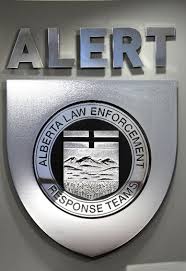armed forces
REMEMBRANCE DAY: REBUILDING CANADA’S MILITARY
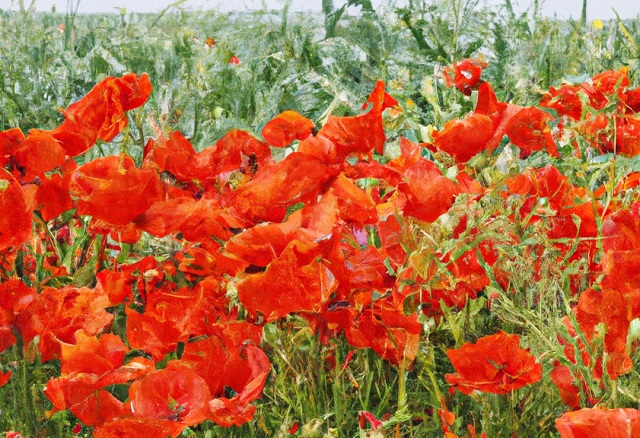
From the Frontier Centre for Public Policy
By Brian Giesbrecht | David Redman
In Flanders fields the poppies blow
Between the crosses, row on row,
………..If ye break faith with us who die
We shall not sleep, though poppies grow
In Flanders fields.
This is the iconic poem written by John McCrae while World War 1 raged, shortly before he too became one of the 40,000,000 million or so people who died during that horrific, meat grinder of a war.
More than 61,000 Canadian soldiers, like McCrae, died in that awful war, and at least 170,000 were seriously wounded – many losing limbs and eyes.
And only a few decades later, World War 2 – really just a continuation of that first European civil war – took in excess of 40,000 more Canadian lives. Canadians were fighting against pure evil. Most were young men struck down in what should have been the prime of their lives
These brave men fought to safeguard the freedom and values that Canada stands for. That Canada didn’t start in 1867. It was formed long before then in a crucible of ancient Greeks, the Jews of Jerusalem, through the Roman Empire, the building of Britain, and the enlightenment. Not every Canadian soldier could articulate every nuance of exactly what that long journey that created Canadian freedom stood for, but they certainly knew why they were willing to sacrifice their lives to preserve what they loved. John McCrae knew exactly what he was fighting for, and he paid the ultimate price.
But what about his challenge to Canadians of today? Have we accepted that torch from failing hands, and held it high?
Or have we broken faith with those who died to save the Canada that he and so many others gave their lives for? What would John McCrae think of Canada today?
Let’s take a look first at Canada’s armed forces. During McCrae’s time, and right through WW2, and the Korean War that followed, Canada punched well above its weight internationally. Canada had a strong army, and our leaders were universally respected. Prime Minister Lester Pearson became the first and only Canadian Prime Minister to win a Nobel Prize for his deft handling of the Suez crisis.
Canada continued to stand strong on the international stage into the 1960s. Our military was strong, Canadian leaders were respected, and we contributed our fair share to our international commitments, such as NATO.
Then came the Pierre Trudeau years. The integration of the Canadian Armed Forces (CAF) in February 1968, while supposedly to increase efficiency, was in fact a brutal exercise in cost cutting, reducing the Army, Navy, and Air Force strengths from over 105,000 to 70,000. The senior Trudeau even wanted to take Canada out of NATO, and was only dissuaded from that bit of insanity by dire warnings from advisers, and threats from allies that doing so would have dire consequences for Canada, domestically and internationally.
The 1980s saw a return to the common-sense realization that Canada must support its armed forces. Total strength of the combined armed forces was expanded to 85,000, and commitments to NATO were honoured. Canada once again was respected by its allies, and once again Canada was punching above its weight on the international stage. In fact, the Mulroney government’s contribution to the ending of South African apartheid was one of our finest hours.
Canada’s armed forces once again felt supported and respected.
But that was then. And this is now. Canada has gone from that place of respectability to a very low place indeed. And virtually everything that has been done since the Justin Trudeau Liberals took power in 2015 has made things so much worse. Slash and burn is probably the best way to describe their military policy. A series of cuts since 2015 have rendered our armed forces virtually toothless. The latest cruel decision to cut a further one billion dollars from the armed forces can almost be seen as an in-your-face insult to our people in uniform.
Canada still has proud and capable men and women in our armed forces. But they are being emasculated by an uncomprehending government that insists on using Canadians’ hard-earned money for every Woke cause in the book – everything except our defence needs. We now completely rely on the Americans to defend us. We have extremely diminished capacity to honour our NATO commitments. Our international partners no longer take us seriously.
I think we can safely say that John McCrae would not be impressed with what has been done with his beloved army, and our reputation abroad.
The current federal government has no interest in rebuilding our debilitated armed forces. In fact, the Prime Minister candidly admitted that he has no intention of even trying to meet Canada’s NATO commitments.
Under his leadership only further cuts to our armed forces can be expected.
As stated in the National Post, there is simply not enough money to fund both a strong army, and the Trudeau government’s socialist pet projects. So, the army must go begging.
However, the current government will not be here forever. Planning must begin now to rebuild our forces, honour our international commitments, and regain our rightful place on the world stage.
In 1967, Canada proudly celebrated the centenary: a country to be proud of for our freedom, peace and internal unity. These values had been bought with the blood of our youth. Today, Canada is no longer considered a trusted ally. Until our nation takes national security seriously, Canada will remain irrelevant, both externally and internally.
Brian Giesbrecht, retired judge, and David Redman, retired Lieutenant Colonel in Canadian Army, are Senior Fellows at the Frontier Centre for Public Policy
armed forces
Canada’s first ‘transgender’ military chaplain suspended for alleged sexual harassment
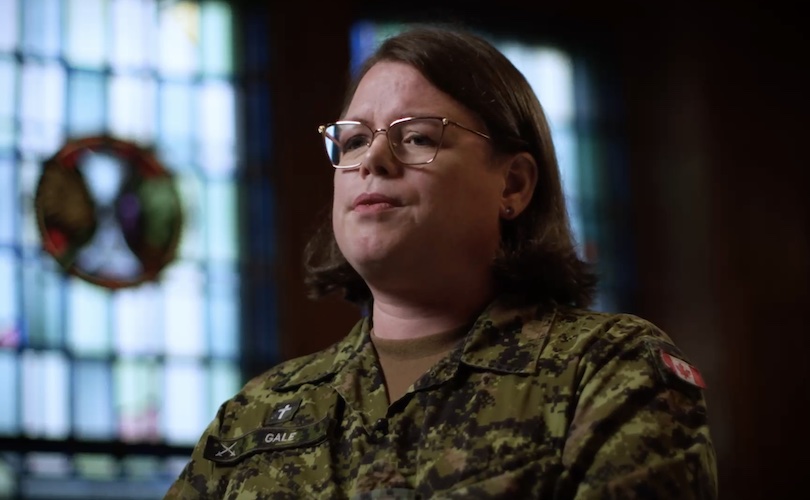
From LifeSiteNews
Canadian Armed Forces Captain ‘Beatrice’ Gale reportedly sought to grope a male soldier while drunk and was suspended just a few weeks after the Canadian military promoted him for ‘International Transgender Day of Visibility.’
Canadian Department of National Defence has suspended a “transgender” military chaplain it previously celebrated after he reportedly sought to grope a male soldier at the Royal Military College while drunk.
On March 28, the government highlighted Canadian Armed Forces Captain “Beatrice” Gale, a man who “identifies” as a woman, for “International Transgender Day of Visibility.” The military’s “first openly transgender chaplain” has been “a vocal advocate” for the so-called “rights” of transgender-identifying members, according to the press release, resulting “in policy changes that contributed to more inclusive gender-affirming medical care for CAF members.”
“I hope that being a transgender chaplain [sic] sends a message to the 2SLGBTQI+ community that the Royal Canadian Chaplain Service cares,” he said. “That it cares for that community.”
Just weeks later, however, the chaplain is generating a different kind of publicity.
True North reports that Gale’s chaplaincy has been revoked following a hearing finding he made an “inappropriate comment or request to another individual.”
Gale was determined to have violated the Queen’s Regulations and Orders by “behav[ing] in a manner that adversely affects the discipline, efficiency or morale of the Canadian Forces.” The specific details of the offense have not been officially confirmed, but, according to an anonymous source, he became inebriated at dinner and asked to grope a male lieutenant’s buttocks.
“The mandate for Captain Gale to serve as a Canadian military chaplain remains suspended. The Chaplain General will consider the implications of the summary hearing’s outcome to determine if additional administrative actions within their authority are required,” said DND spokesperson Andrée-Anne Poulin. Gale was docked two days pay and 20 days leave and is currently on administrative duty.
“If a male officer behaved in a similar manner towards a subordinate female, the situation would be dealt with differently, and the offender’s name would be leaked to the press. Unfortunately, there is a lack of equality in how the Canadian Armed Forces handle such allegations,” attorney Phillip Millar, a former combat officer who now represents Canadian soldiers, told True North.
He added that he once had a client who “was not granted the same leniency for much less serious alleged infractions. However, in the case of a transgender offender who held a position of trust as a padre and a senior in rank, the matter was simply swept under the rug.”
As is the case in the United States, Canada’s armed forces are currently struggling to attract recruits in the wake of adopting “woke” policies such as COVID-19 shot mandates, “climate change” lectures, and pro-LGBT “identity” initiatives.
The DND declared last month that increased “diversity and inclusivity” are “vital” to creating an effective military and that they “enrich the workplace.”
armed forces
Canadians are finally waking up to the funding crisis that’s sent the Canadian Armed Forces into a “death spiral”
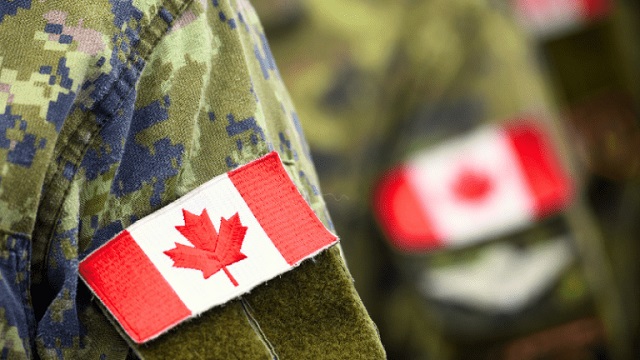
From the Macdonald Laurier Institute
By By J.L. Granatstein
Must we wait for Trump to attack free trade between Canada and the US before our politicians get the message that defence matters to Washington?
Nations have interests – national interests – that lay out their ultimate priorities. The first one for every country is to protect its population and territory. It is sometimes hard to tell, but this also applies to Canada. Ottawa’s primary job is to make sure that Canada and Canadians are safe. And Canada also has a second priority: to work with our allies to protect their and our freedom. As we share this continent with the United States, this means that we must pay close attention to our neighbouring superpower.
Regrettably for the last six decades or so we have not done this very well. During the 1950s, the Liberal government of Louis St. Laurent in some years spent more than 7 percent of GDP on defence, making Canada the most militarily credible of the middle powers. His successors whittled down defence spending and cut the numbers of troops, ships, and aircraft. By the end of the Cold War, in the early 1990s, our forces had shrunk, and their equipment was increasingly obsolescent.
Another Liberal prime minister, Jean Chrétien, balanced the budget in 1998 by slashing the military even more, and by getting rid of most of the procurement experts at the Department of National Defence, he gave us many of the problems the Canadian Armed Forces face today. Canadians and their governments wanted social security measures, not troops with tanks, and they got their wish.
There was another factor of significant importance, though it is one usually forgotten. Lester Pearson’s Nobel Peace Prize for helping to freeze the Suez Crisis of 1956 convinced Canadians that they were natural-born peacekeepers. Give a soldier a blue beret and an unloaded rifle and he could be the representative of Canada as the moral superpower we wanted to be. The Yanks fought wars, but Canada kept the peace, or so we believed, and Canada for decades had servicemen and women in every peacekeeping operation.
There were problems with this. First, peacekeeping didn’t really work that well. It might contain a conflict, but it rarely resolved one – unless the parties to the dispute wanted peace. In Cyprus, for example, where Canadians served for three decades, neither the Greek- or Turkish-Cypriots wanted peace; nor did their backers in Athens and Ankara. The Cold War’s end also unleashed ethnic nationalisms, and Yugoslavia, for one, fractured into conflicts between Serbs, Croats, Bosnians, Christians, and Muslims, leading to all-out war. Peacekeepers tried to hold the lid on, but it took NATO to bash heads to bring a truce if not peace.
And there was a particular Canadian problem with peacekeeping. If all that was needed was a stock of blue berets and small arms, our governments asked, why spend vast sums on the military? Peacekeeping was cheap, and this belief sped up the budget cuts.
Even worse, the public believed the hype and began to resist the idea that the Canadian Armed Forces should do anything else. For instance, the Chrétien government took Canada into Afghanistan in 2001 to participate in what became a war to dislodge the Taliban, but huge numbers of Canadians believed that this was really only peacekeeping with a few hiccups.
Stephen Harper’s Conservative government nonetheless gave the CAF the equipment it needed to fight in Afghanistan, and the troops did well. But the casualties increased as the fighting went on, and Harper pulled Canada out of the conflict well before the Taliban seized power again in 2021.
Harper’s successor, Liberal Prime Minister Justin Trudeau, clearly has no interest in the military except as a somewhat rogue element that needs to be tamed, made comfortable for its members, and to act as a social laboratory with quotas for visible minorities and women.
Is this an exaggeration? This was Trudeau’s mandate letter to his defence minister in December 2021: “Your immediate priority is to take concrete steps to build an inclusive and diverse Defence Team, characterized by a healthy workplace free from harassment, discrimination, sexual misconduct, and violence.” DND quickly permitted facial piercings, coloured nail polish, beards, long hair, and, literally, male soldiers in skirts, so long as the hem fell below the knees. This was followed by almost an entire issue of the CAF’s official publication, Canadian Military Journal, devoted to culture change in the most extreme terms. You can’t make this stuff up.
Thus, our present crisis: a military short some 15,000 men and women, with none of the quotas near being met. A defence minister who tells a conference the CAF is in a “death spiral” because of its inability to recruit soldiers. (Somehow no one in Ottawa connects the culture change foolishness to a lack of recruits.) Fighter pilots, specialized sailors, and senior NCOs, their morale broken, taking early retirement. Obsolete equipment because of procurement failures and decade-long delays. Escalating costs for ships, aircraft, and trucks because every order requires that domestic firms get their cut, no matter if that hikes prices even higher. The failure to meet a NATO accord, agreed to by Canada, that defence spending be at least 2 percent of GDP, and no prospect that Canada will ever meet this threshold.
But something has changed.
Three opinion polls at the beginning of March all reported similar results: the Canadian public – worried about Russia and Putin’s war against Ukraine, and anxious about China, North Korea, and Iran (all countries with undemocratic regimes and, Iran temporarily excepted, nuclear weapons) – has noticed at last that Canada is unarmed and undefended. Canadians are watching with concern as Ottawa is scorned by its allies in NATO, Washington, and the Five Eyes intelligence sharing alliance.
At the same time, official Department of National Defence documents laid out the alarming deficiencies in the CAF’s readiness: too few soldiers ready to respond to crises and not enough equipment that is in working order for those that are ready.
The bottom line? Canadians finally seem willing to accept more spending on defence.
The media have been hammering at the government’s shortcomings. So have retired generals. General Rick Hillier, the former chief of the defence staff, was especially blunt: “[The CAF’s] equipment has been relegated to sort-of-broken equipment parked by the fence. Our fighting ships are on limitations to the speed that they can sail or the waves that they can sail in. Our aircraft, until they’re replaced, they’re old and sort of not in that kind of fight anymore. And so, I feel sorry for the men and women who are serving there right now.”
The Trudeau government has repeatedly demonstrated that it simply does not care. It offers more money for the CBC and for seniors’ dental care, pharmaceuticals, and other vote-winning objectives, but nothing for defence (where DND’s allocations astonishingly have been cut by some $1 billion this year and at least the next two years). There is no hope for change from the Liberals, their pacifistic NDP partners, or from the Bloc Québécois.
The Conservative Party, well ahead in the polls, looks to be in position to form the next government. What will they do for the military? So far, we don’t know – Pierre Poilievre has been remarkably coy. The Conservative leader has said he wants to cut wasteful spending and eliminate foreign aid to dictatorial regimes and corrupted UN agencies like UNRWA. He says he will slash the bureaucracy and reform the procurement shambles in Ottawa, and he will “work towards” spending on the CAF to bring us to the equivalent of 2 percent of GDP. His staff say that Poilievre is not skeptical about the idea of collective security and NATO; rather, he is committed to balancing the books.
What this all means is clear enough. No one should expect that a Conservative government will move quickly to spend much more on defence than the Grits. A promise to “work towards” 2 percent is not enough, and certainly not if former US President Donald Trump ends up in the White House again. Must we wait for Trump to attack free trade between Canada and the US before our politicians get the message that defence matters to Washington? Unfortunately, it seems so, and Canadians will not be able to say that they weren’t warned. After all, it should be obvious that it is in our national interest to protect ourselves.
J.L. Granatstein taught Canadian history, was Director and CEO of the Canadian War Museum, and writes on military and political history. His most recent book is Canada’s Army: Waging War and Keeping the Peace. (3rd edition).
-

 COVID-192 days ago
COVID-192 days agoPeckford: Hallelujah! Supreme Court of Canada to hear Newfoundland and Labrador charter case
-

 Alberta1 day ago
Alberta1 day agoAlberta’s vision for passenger rail
-
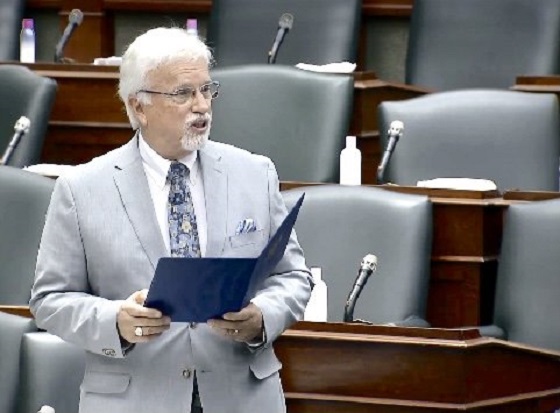
 COVID-192 days ago
COVID-192 days agoFormer Canadian lawmaker has no regrets about refusing COVID shot despite losing his job
-

 Alberta1 day ago
Alberta1 day agoThree Calgary massage parlours linked to human trafficking investigation
-

 Uncategorized1 day ago
Uncategorized1 day agoMaking Alberta a geothermal energy leader
-

 Alberta2 days ago
Alberta2 days agoCanada’s postal service refuses to help with Trudeau’s gun ban buyback program: report
-
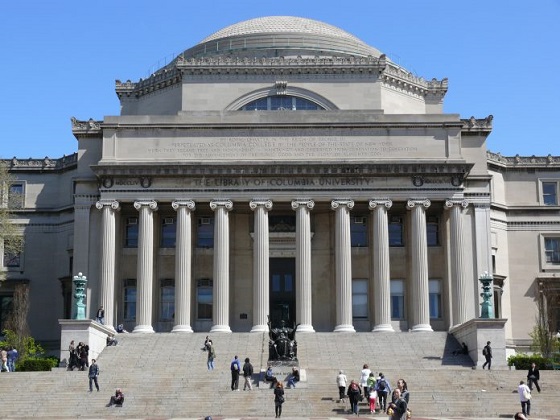
 conflict23 hours ago
conflict23 hours agoColumbia on Lockdown After pro-Palestinian Protesters Take Over Building, Hold Janitors Hostage
-
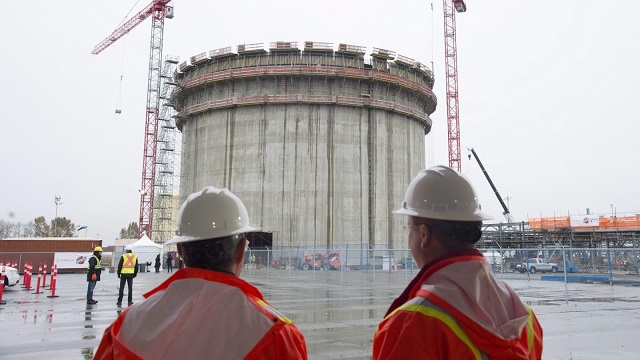
 Canadian Energy Centre22 hours ago
Canadian Energy Centre22 hours agoNorth America LNG project cost competitiveness








